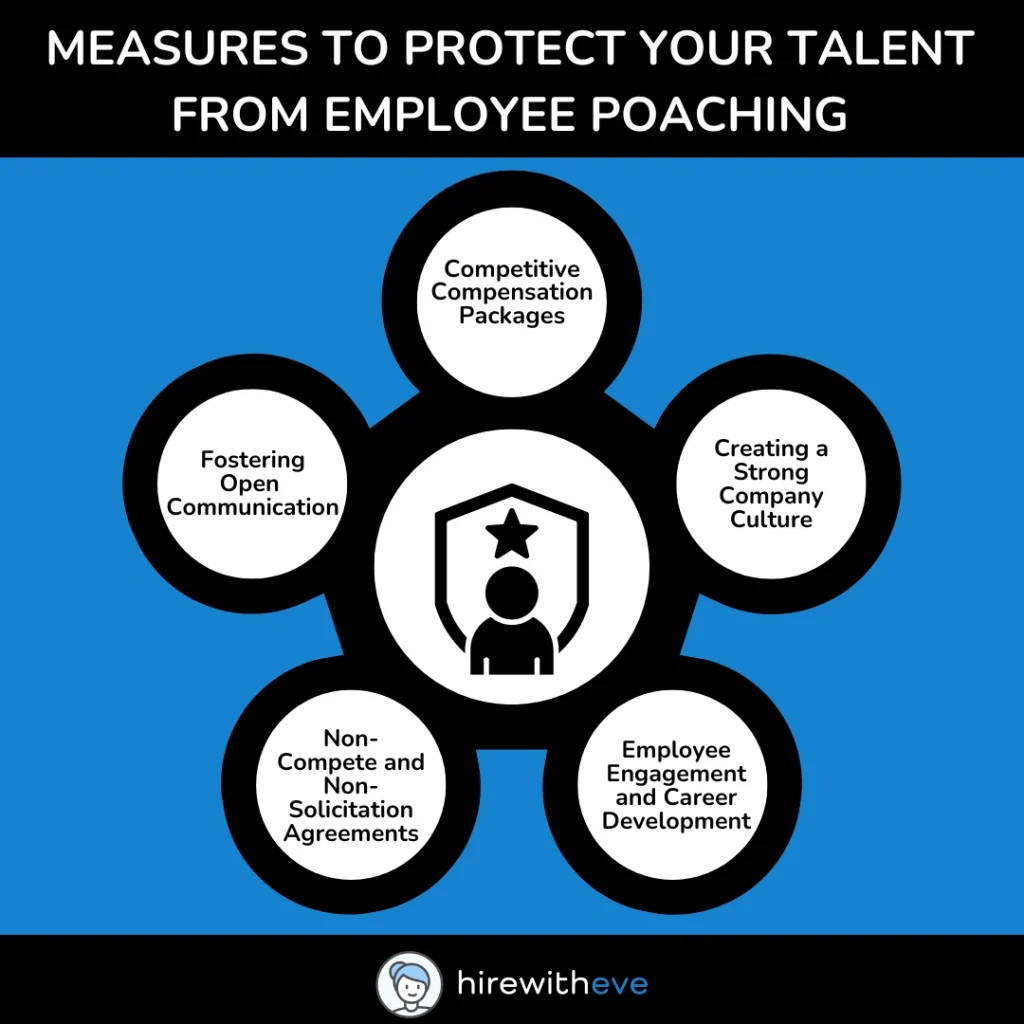What Is Employee Poaching? Is It Illegal?

In today’s competitive job market, retaining top talent has become one of the biggest challenges for businesses across industries. One of the more controversial strategies used by companies to secure the best employees is Employee Poaching.
This practice involves hiring away employees from competing companies, particularly those with specialized skills or high performance. While Employee Poaching may seem like a necessary evil for some businesses, others view it as an unethical practice that disrupts workforce stability.
This article delves into Employee Poaching, explores its legal implications, and provides insight into how HR managers and talent acquisition specialists can navigate this tricky terrain.
What Is Employee Poaching?
Employee Poaching is the practice of targeting and hiring employees from a competitor or similar company. Unlike general recruitment, Employee Poaching is more intentional and focused on individuals who are known to have specific skills or knowledge that would benefit the hiring company. These employees are often highly skilled, have extensive experience, or hold key positions in their current company.
Employee Poaching can take many forms, such as reaching out directly to employees through networking platforms like LinkedIn, using third-party recruiters, or even offering higher compensation packages to entice them to leave their current jobs.
Companies use this tactic to gain a competitive edge by acquiring the expertise of their competitors, but it can also lead to tension between companies and even legal disputes.
Legal Considerations Around Employee Poaching
One of the most frequently asked questions surrounding Employee Poaching is whether it is illegal.
The answer depends on various factors, including the country’s laws, any contractual agreements in place, and the methods used to poach employees.
Non-Compete Clauses and Employment Contracts: In many industries, employees sign contracts that include non-compete clauses or non-solicitation agreements. These clauses restrict employees from joining or being hired by a direct competitor for a certain period after leaving the company. Employee Poaching can become legally questionable if it violates these contractual agreements.
Trade Secrets and Confidentiality Agreements: Another legal concern surrounding Employee Poaching involves trade secrets. If a poached employee is hired and then shares proprietary information from their former employer, it could lead to litigation over intellectual property theft.
Ethics of Employee Poaching: While Employee Poaching is not inherently illegal, it can raise ethical concerns within the business community. Some companies may view the practice as predatory and harmful to workplace culture. However, others argue that Employee Poaching is a reflection of the free market, where talent has the right to seek better opportunities.
State-by-State Regulations: In some U.S. states, non-compete clauses and poaching laws are enforced more strictly than others. For instance, California has made non-compete clauses largely unenforceable, which makes Employee Poaching more prevalent. Companies must be aware of local laws governing recruitment practices to ensure they are not crossing any legal boundaries.
Industry Practices and Surveys on Employee Poaching
Various studies and surveys have highlighted how common Employee Poaching has become in industries like tech, finance, and healthcare, where specific skill sets are highly in demand.
According to a 2023 survey by the Society for Human Resource Management (SHRM), nearly 40% of businesses reported having lost key employees to Employee Poaching in the past year. This figure is even higher in the tech industry, where companies are constantly on the lookout for software developers, data scientists, and other specialized professionals.
Moreover, the survey indicated that Employee Poaching is not always an unsolicited act. Around 25% of professionals surveyed admitted they would consider switching jobs if approached with a better offer, even if they were not actively seeking a change.
This shows that Employee Poaching is not just about stealing talent but also about appealing to the natural inclination of workers to seek better conditions and opportunities.
How to Protect Your Talent from Employee Poaching?
Given the risks of losing top performers to Employee Poaching, what can companies do to safeguard their talent?

Competitive Compensation Packages: Offering a competitive salary, bonuses, and other financial incentives is one of the most effective ways to discourage Employee Poaching. Companies that keep their compensation packages in line with industry standards are less likely to lose key employees.
Creating a Strong Company Culture: Employees are less likely to leave if they feel valued and connected to their workplace. A positive company culture that promotes growth, learning, and recognition can help prevent Employee Poaching by fostering loyalty.
Employee Engagement and Career Development: One reason why employees leave is the lack of career progression. Providing clear paths for advancement, learning opportunities, and leadership development can reduce the chances of your workforce being targeted by Employee Poaching.
Non-Compete and Non-Solicitation Agreements: While not foolproof, having clear and enforceable non-compete and non-solicitation agreements in employee contracts can help deter Employee Poaching.
Fostering Open Communication: Open communication between HR and employees can reveal underlying dissatisfaction that might otherwise drive workers to consider outside offers. Early intervention could prevent Employee Poaching attempts from succeeding.
Conclusion
Employee Poaching is a growing concern for HR managers and talent acquisition specialists, especially in competitive industries. While the practice itself is not illegal, it can lead to legal challenges and the loss of valuable talent. Preventative measures such as offering competitive compensation, fostering a strong company culture, and implementing legal protections can help mitigate the risks associated with Employee Poaching.
This is where platforms like HirewithEve.ai can play a crucial role. By utilizing HirewithEve.ai’s skills-based hiring approach, businesses can find and nurture the right talent before competitors have the chance to poach their employees. The platform’s comprehensive features, such as applicant tracking system (ATS) integration, Data insights, and analytics, empower companies to build a loyal and skilled workforce.
Additionally, HirewithEve.ai helps HR teams stay ahead of the curve by ensuring they hire not just based on credentials, but on a comprehensive understanding of candidate skills, thus minimizing the impact of Employee Poaching.
By addressing the root causes that lead to Employee Poaching, HirewithEve.ai ensures your company is equipped to attract and retain top talent while maintaining a competitive edge in the market.
